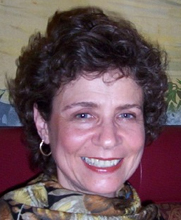


Questions & Answers - September 2003

|
Mary C. Fridley, RN,C is a registered nurse certified in gerontology with more than twenty years in the geriatric health field. She is the owner of Gero-Resources specializing in caregiver, eldercare, and successful aging education and advocacy. Mary is also an author of two caregiver advice columns and contributes articles to various websites. She is available for speaking engagements and would be happy to answer your questions or concerns while maintaining your anonymity.
About Mary
Mary's Column Archives: Caregivers'
Questions & Answers
|
Dear Mary,
My father recently had cancer surgery and is now home but in terrible pain. He was given pain medicine but it doesn’t seem to be working and he’s getting very depressed. He needs help with some of his personal care, too. His attitude is that pain is to be expected with cancer and there isn’t much anyone can do. I don’t know how to help him and I’m desperate for guidance. What do you suggest?
Pain is the fifth vital sign and should receive the same attention as fever or high blood pressure. Some barriers to seeking pain relief include misconceptions such as your father’s, that cancer and pain are synonymous. Some people are reluctant to approach their doctor for fear they will be told the cancer has gotten worse. Others fear being labeled a complainer while some actually believe pain endurance builds character.
Protracted pain can cause depression, immobility, nutritional deficiencies, and dehydration, all of which are serious problems for older adults.
I suggest you call his doctor immediately and get his pain under control. Also ask him to order Home Health Nursing to provide pain management and help with personal care.
The American Cancer Society is a valuable resource for people affected by cancer and their caregivers. Please contact them locally or at the national number 1-800-ACS-2345.
Dear Mary,
My husband “John” and I are very concerned about his parents. His 90-year-old grandfather recently moved in with them at the same time his father was diagnosed with cancer. John’s grandfather doesn’t speak English and is fearful of strangers so his parents don’t want to hire any help. Actually, they think they can manage fine without it. His father will most likely be starting treatment soon and his mother will be left caring for two. John and I are beside ourselves with worry. We have tried to talk sense into them and even offered to pay for help, but to no avail. We live quite a distance away and are worried sick that something will happen and we won’t know about it until it’s too late. What can we do from so far away?
Dear Reader,
Worry is the plight of all long distance caregivers. There is an approach you can try that will allow John’s parents to maintain some control and preserve their pride. Rather than giving them the message that they are not capable of managing alone, tell them you feel bad that you are not close enough to help with your grandfather’s care. Implore them to make you feel better by allowing you to hire a care manager for him to be available if help is ever needed. The care manager will make frequent contact with them and you, and establish a rapport of trust that will enable her to introduce help for anyone in the home as needed. Let me know how this works.
Dear Mary
I am caring for my husband who has Parkinson’s disease. It has been eight long years since he was diagnosed and every day there’s something new. I know it’s not his fault that he needs so much help but I feel resentful that our lives have come to this. Sometimes I wish the end would come soon, but then I feel guilty for having such a thought. I know I am depressed but don’t see how counseling can help because my situation isn’t going to change any time soon. I use to be involved with so many things and enjoyed life, now I feel empty and all alone. I suppose I could join a support group but don’t have the desire to listen to someone else’s problems. I’m not sure why I’m writing to you but you seem like someone who cares. I don’t expect you to be able to help me I guess I just needed to tell someone. Thanks for listening.
Dear Reader,
I am pleased that you chose to write to me; however, I can’t pass up the opportunity to try to help you so humor me for a moment and read this.
Acknowledging that you are depressed is the first step to getting help. Run, don’t walk, to the phone and make an appointment with your doctor and get treatment. No, your situation probably will not change soon, but that’s not a sound reason to forgo your health. You must get your emotional health restored in order to get through each day and face the future.
Depression is a serious illness that renders the sufferer powerless and in severe emotional pain. Although it is classified as a mental illness it is no less an illness than diabetes or heart disease. Left untreated it will compromise your physical and spiritual health. There are some new antidepressants available that work quickly and have fewer side effects. A combined of medicine and counseling is a good remedy but you may only need one or the other.
Sometimes life stinks, but it still goes on. You can choose to endure it or enjoy it, it’s up to you. I’m betting you are sick and tired of feeling this way and are ready to enjoy life again. Let me know how you make out. I do care.
Email Mary: info@gero-resources.com
Gero-Resources.com
Featured Experts - Main Page
It is illegal to reprint articles, in any format (including emails, websites, etc.), without explicit written permission from the author of this article and / or Empowering Caregivers™
|
|

